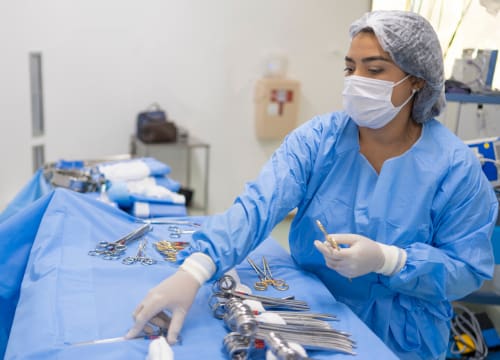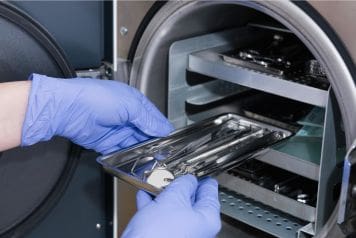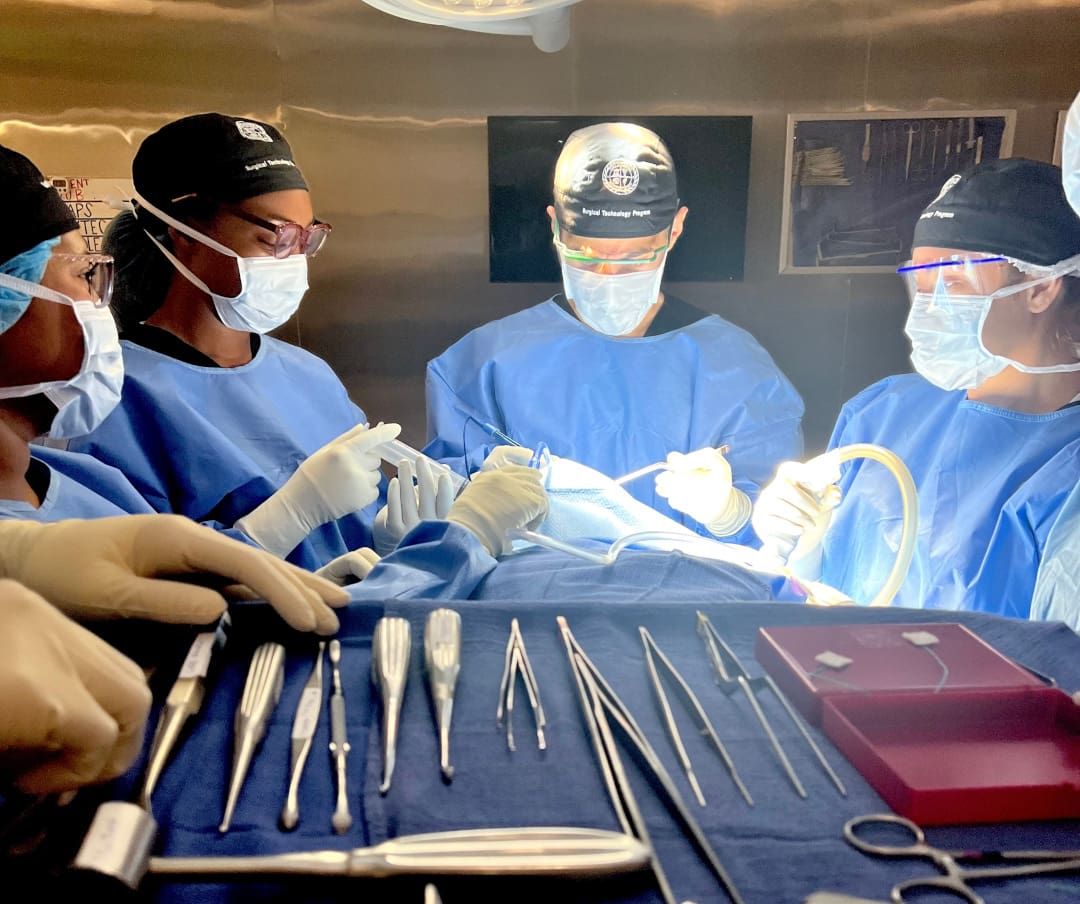Surgical technologists, often referred to as surgical techs or operating room (OR) technicians, play a crucial role in ensuring surgeries run smoothly and efficiently. Their work is dynamic, fast-paced, and integral to the success of any surgical procedure. If you’ve ever wondered what a typical day for a surgical technologist looks like, this blog post will provide an inside look at their daily routine.
Morning: Preparing for the Day
The day for a surgical technologist usually begins early. Hospitals and surgical centers often schedule surgeries in the morning, so surgical techs arrive well before the first procedure to prepare.
Prepping the Operating Room
Upon arrival, surgical technologists check the day’s surgical schedule to understand the procedures and ensure the operating room is set up accordingly. This involves:
- Assembling surgical instruments and equipment.
- Sterilizing tools and ensuring all items are free of contaminants.
- Arranging instruments on the surgical tray in the correct order for the procedure.
- Checking and testing equipment, such as lights, suction machines, and electrosurgical devices, to ensure they’re functioning properly.

Collaborating with the Surgical Team
Surgical technologists meet with the surgical team, including surgeons, anesthesiologists, and nurses, to review the patient’s case and the specific needs of the procedure. These discussions often include details about the patient’s medical history, the planned surgical approach, and any potential complications that might arise during the operation. Each team member’s role is clarified, ensuring that everyone understands their responsibilities. This time is also used to address any last-minute adjustments, such as the need for specialized instruments or additional supplies, to guarantee the surgery proceeds as smoothly as possible.
Mid-Morning: Assisting During Surgery
Once the operating room is ready, the surgical technologist transitions into assisting with the surgery. This shift requires a seamless handover from preparation to execution, as the surgical tech ensures every detail is in place before the procedure begins. They double-check that all instruments are arranged in the correct sequence, verify the functionality of essential equipment, and confirm that the operating field remains sterile. As the surgical team assembles, the tech helps facilitate the transition by assisting team members as they scrub in, don sterile gowns, and prepare for their specific roles in the procedure. Their responsibilities during the procedure are varied and critical:

- Patient Preparation: Before the surgery begins, surgical techs assist in positioning the patient and applying sterile drapes.
- Passing Instruments: During the procedure, surgical technologists anticipate the surgeon’s needs by passing instruments, sponges, and other supplies as requested. They must remain focused, alert, and quick to respond to ensure the surgery progresses smoothly.
- Maintaining a Sterile Environment: Surgical techs are responsible for ensuring the sterility of the operating field. This includes:
- Keeping a close eye on the surgical instruments and ensuring they remain sterile.
- Monitoring the surgical team’s adherence to aseptic techniques.
- Handling Specimens: In cases where tissue or fluid samples are taken, surgical techs properly label and handle specimens for further analysis.
Afternoon: Post-Surgery Duties
After the procedure is completed, the surgical technologist’s work continues as they help restore the operating room to its original state and prepare for the next surgery.
- Instrument Cleaning and Sterilization: All instruments used during the procedure are carefully cleaned, sterilized, and organized for future use. Surgical techs follow strict protocols to ensure all items meet hygiene and safety standards.
- Restocking Supplies: Surgical technologists restock the operating room with necessary supplies, such as sutures, gloves, and sterile drapes. This ensures the next procedure can begin without delay.
- Documentation: Surgical techs assist in documenting the procedure, including:
- Recording the instruments and materials used.
- Updating patient records as needed.

Late Afternoon: Wrapping Up the Day
As the day winds down, surgical technologists may assist with additional surgeries or prepare for the next day’s schedule. This includes:

- Evaluating Equipment: Ensuring all equipment is in proper working order for future procedures.
- Debriefing with the Team: Surgical techs may participate in post-surgical discussions to review what went well and identify areas for improvement. Feedback helps the team continuously enhance their performance.
- Continuing Education and Training: Many surgical techs take time to stay updated on new techniques, technologies, and best practices. This commitment to learning is essential in the ever-evolving field of healthcare.
Challenges and Rewards
While the routine of a surgical technologist is demanding, it’s also incredibly rewarding. Some of the challenges include:
- Long Hours: Surgeries can be unpredictable, and techs must remain flexible to accommodate extended procedures or emergencies.
- Physical Demands: Standing for long periods and handling heavy equipment requires stamina and physical strength.
- High Stress: The operating room can be a high-pressure environment where precision and focus are non-negotiable.
- Dealing with Tension: Since the OR can be a tense and high-pressure environment (especially when complications arise during surgery), surgeons may display frustration or heightened emotions if things aren’t going as planned. As a surgical tech, it’s important to not take things personally and to remain calm, focusing on the task at hand. This emotional resilience is key to surviving and thriving in the environment.
- Fast-Paced Environment: In a high-stress situation, staying organized can become increasingly difficult. Surgeons and other team members may need specific instruments or supplies quickly. Surgical techs must be able to locate tools without hesitation, ensure sterile fields are maintained, and handle unexpected changes during the procedure. If something is forgotten or mishandled, it can have serious consequences.
- Critical Decision Making: The OR is an environment where every second counts, and surgeons make life-or-death decisions. Surgical techs need to be prepared to act quickly and efficiently under these conditions, even when emotions or urgency are running high.
Despite these challenges, surgical technologists find immense satisfaction in their work. They take pride in knowing their efforts directly contribute to saving lives and improving patient outcomes.
Is This Career Right for You?
If you thrive in a fast-paced, detail-oriented environment and enjoy working as part of a team, a career as a surgical technologist might be a perfect fit. The role requires a unique combination of technical skills, quick thinking, and a commitment to patient care.
At CNI College, our Surgical Technology program is designed to prepare you for this exciting and fulfilling career. Through hands-on training and comprehensive coursework, you’ll gain the knowledge and skills needed to excel in the operating room. Whether you’re just starting your career or looking to make a change, becoming a surgical technologist can open the door to a rewarding future.

